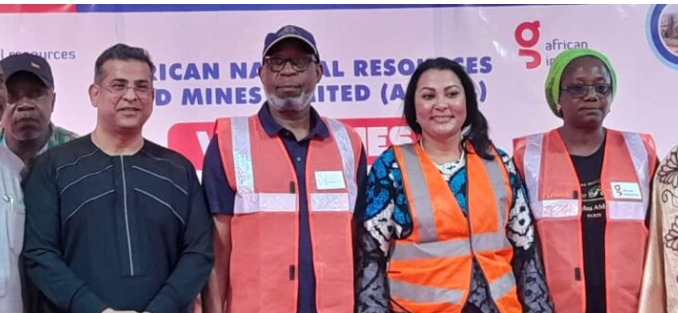

Nigeria, which has more than 200 million people living there and the biggest economy on the continent, is making great progress in producing steel domestically. This achievement might revolutionize the country’s industrial environment and position it as a significant player in the world steel market. The possible effects and current advancements in this intriguing topic are examined in this paper.
Present Situation:
Limited Production: Nigeria currently lacks the capacity to produce steel domestically, despite possessing some of the continent’s greatest iron ore reserves, estimated to be worth over 2.7 billion tonnes. The nation spends billions of dollars a year on steel imports to meet its industrial demands, and it is mostly dependent on them [BusinessDay Nigeria, steel sector]. Current steel producers mainly use imported scrap and billets, which restricts their production and prevents the development of a stronger indigenous steel sector.
Untapped Potential: The nation has a wealth of iron ore resources, but the lack of adequate infrastructure and advanced technology has prevented the growth of a strong indigenous steel sector.
Changing Gears:
Government Initiatives: The establishment of a Ministry of Steel Development marks a significant change in strategy for the industry’s revival. Through domestic steel manufacturing, the government hopes to make the most of available resources and generate employment [LinkedIn, Nigeria to begin steel production].
Private Sector Investment: A notable private investment in domestic steel manufacturing is the iron ore processing plant owned and operated by the African Industries Group in Kaduna. Millions of tons of steel might be produced annually at this plant.
Advantages of Domestic Steel Manufacturing:
Decreased Dependency on Imports: Nigeria’s trade balance and economic independence can be strengthened by considerably reducing its reliance on imported steel.
Employment Creation: The steel sector has the capacity to provide hundreds of thousands of direct and indirect employment, hence promoting economic expansion.
Infrastructure Development: Reliable sources of materials for important infrastructure projects can be found in a strong local steel sector.
Industrialization: New ventures and economic diversification can be promoted by domestic steel production, which can serve as a catalyst for additional industrial development.
Obstacles & Things to Think About:
Infrastructure Improvement: To enable large-scale steel manufacturing, Nigeria would need to make investments in the improvement of its infrastructure, particularly dependable power sources and effective transportation systems.
Technological Advancement: To maintain efficiency and competitiveness in the global market, modernizing the technology used in the steel production process would be essential.
Development of a Skilled Workforce: To provide a workforce with the necessary skills to run and maintain cutting-edge steel production plants, training programs are required.
Gazing Forward:
Nigeria’s entry into the domestic steel market offers a bright future for the country’s industrial and economic development. Reaching the maximum potential of this industry will require overcoming the current obstacles. It will be interesting to see Nigeria’s transformation into a steel powerhouse as plans advance and investments come to pass.

Be the first to comment